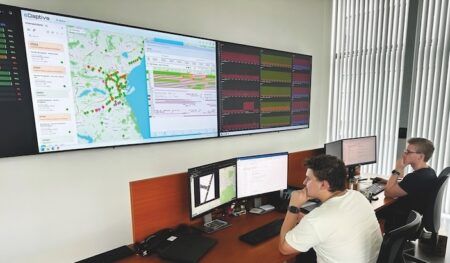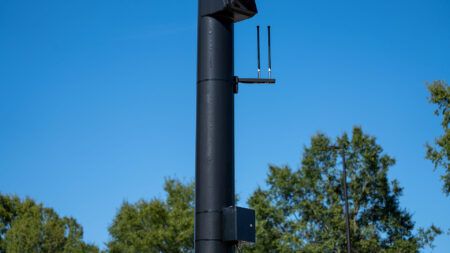Two neighboring UK county councils are working with Cambridge-based technology company Telensa to deploy an Internet of Things-based (IoT) smart city system using their existing smart street lighting networks.
Essex and Hertfordshire county councils are working together to pilot new smart city services in a partnership with Telensa that will assess the potential quality-of-life and economic benefits of a range of new technologies.
Both councils were early adopters of Telensa’s wireless streetlight controls, which pay for themselves and save money every year, by reducing energy consumption and enabling a more efficient maintenance operation. They also recognized that by harnessing their county-wide lighting networks, they could introduce new smart city monitoring services at a fraction of the cost.
The smart city systems in the project include:
• Traffic monitoring and analytics – from dimming unnecessary streetlighting on empty roads to understanding local traffic patterns;
• Highway wind monitoring – instantly alerts the roadways team of high winds or gusts, and builds a data set that helps to predict dangerous local driving conditions;
• Gully monitoring – blocked street drains (gullies) cause flooding, and monitors can alert and even predict problems before they happen;
• Air quality monitoring – provides street-by-street measurement of air quality to complement the broad picture provided by existing monitoring stations;
• Waste bin monitoring – enables cleaner streets through more responsive collections, and helps make sure there is enough capacity where it is needed.
As well as the operational benefits, infrastructure monitoring builds up a vast data set that can be used to spot trends across departments, leading to better decision making and more joined-up working.
The councils are currently assessing the suitability of three sites in towns in Hertfordshire and Essex, with the pilot due to commence in March and run initially for two months. The project will use Telensa’s Low Power Wide Area (LPWA) wireless networks that simply attach to streetlights and can provide region-wide coverage in a matter of days.
The overall system will be controlled by the company’s PLANet platform, which is the world’s most widely deployed smart streetlight system and has a current footprint of over 1.5 million lights.
“Hertfordshire and Essex are pioneers of smart street ighting, and between them already use our technology to control 250,000 streetlights,” noted Will Gibson, founder and chief commercial officer at Telensa.
“This project will show the community and financial benefits unlocked by adding new sensor applications to our streetlight network.”




